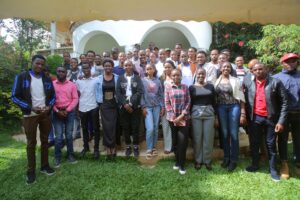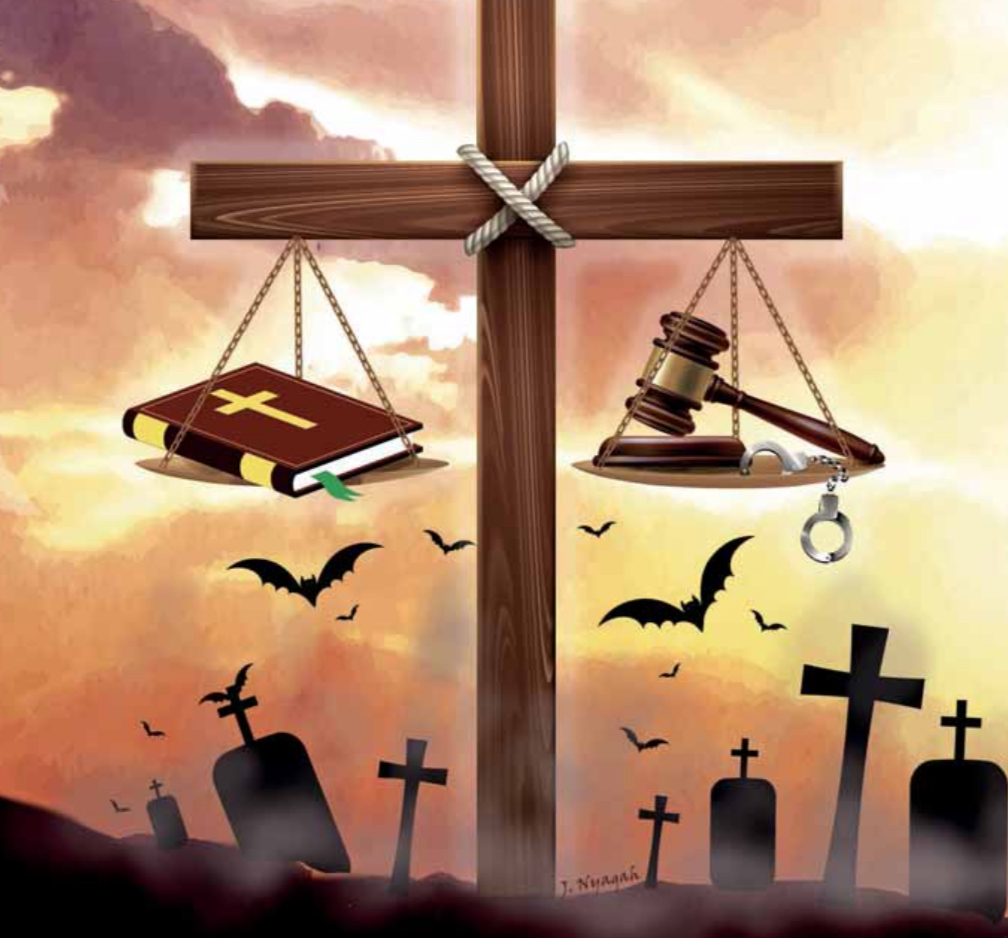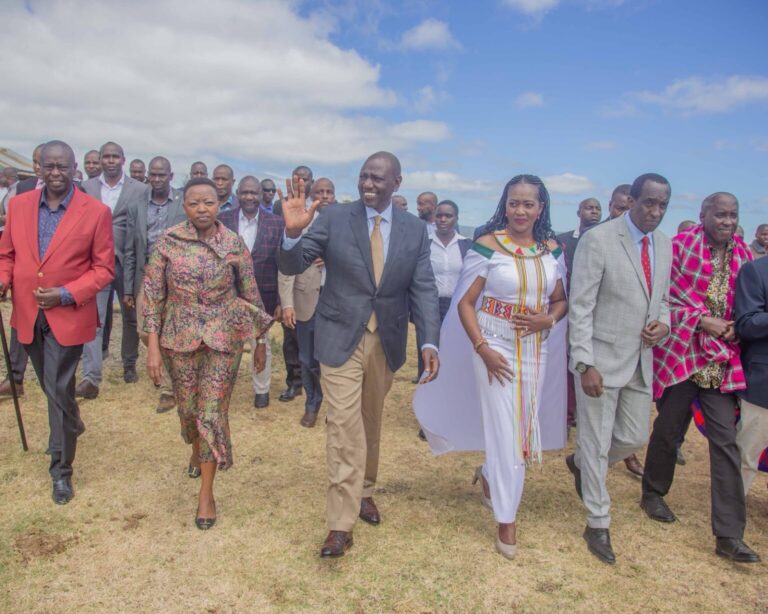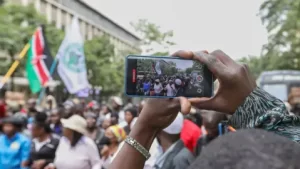The recent protests against the Finance Bill 2024 by Gen Z have taught us a lot, particularly about the silence of the church. It’s either that the Gen Zs do not attend their churches, or the church simply does not care. A lot of them (the Gen Zs, not the church) have lost their lives in the protests against this punitive law. I think now the Gen Zs wouldn’t allow themselves to be socially manipulated by religion.
Religious men and women today have become thugs, blasphemous, and self-centered. They are cleansing and blessing the homes of the MPs that supported the murderous Finance Bill. They don’t care about the parents who lost their children in peaceful protests. They are using the name of God in vain and profanity for their own greed and ambitions. Kenyans have lost the trust they once had in the church. Their silence in the face of brutal killings of peaceful protestors and children has shattered the faith they had in the church. They’ve let us down deeply. They have greatly enabled this tyranny. It is the church that endorses this government.
You can tell by how the church, and by extension, religious organizations have been serving popcorn entertainment by falling over themselves, angling to frolic in the corridors of power—from mashinani to majuu. But even the blind can see how the Church has recently been at odds with its heavenly and earthly masters, the former offering eternal life, the latter building heaven on earth. For a cleric, the hottest ticket in town is an invite to State House, or for State House to come to you.
Not so for my immortal soul. After a whirlwind teenage storybook romance, the Almighty and I hit a snag in our relationship. We are staying together for the kids—the kids being a wedding or a funeral, where He recently caught my eye across the room during a requiem and I looked away in shame, embarrassed that I hadn’t called. Which is why I am surprised that He blinked first, showing up unannounced at my new residence.
I am no longer a religious fanatic. I am no atheist either. Nor am I a misotheist—I don’t hate God. Quite the contrary. I like God—or the idea of God. But why do His people have to be so loud? And why is it always the ’hoods that have the loud churches? In the “larger Kilimani” area, within a square mile of Kawangware, Congo, or Amboseli, you will find no less than twenty-odd churches, assaulting every ear in their vicinity. If the Protestants don’t get you, the Adventists will. Church services that should take, at best, two hours, are extended to accommodate politicians who promise “sitaleta siasa kanisani.” They go on and on, castigating their opponents, bellowing their achievements, “leta-ing siasa kanisani.” The congregation, meanwhile, is cast under their spell, ululating and dancing and stomping their feet as the 100K, 200K, 300K, or whatever amount the politician has donated hits the offering basket. The Church has chosen Caesar over God and, put on a scale, has been found wanting.
I know how I lost my faith: when the church and the politicians started speaking through one mouth. Politics and preachers make for awkward bedfellows, but when Christianity is politicized, churches transfigure into repositories not of grace but of grievances. The combination of religion and politics is an alchemy of pure evil, all in the name of God, an exemplar of taking the Lord’s name in a vain self-serving fashion. It feels like the church is unwittingly behaving like the adamant prophet Balaam, from the story in the Bible, while the donkey—the congregation—keeps resisting the prodding, because they can see the angel with a drawn sword on the road. In other words, one can’t tell where the politician ends and the pastor begins. President Ruto got his political (mis)education from President Moi, perfecting his master’s tricks. President Moi was “God’s anointed”; Ruto is “God’s Chosen One.” Moi himself was said to be hyper-religious, an AIC faithful, waking up at 5 a.m. to pray and read the Bible. Ruto, falling at the base of the apple tree, is presumably a devout man of God, a teetotaler, waking up at 4 a.m. to pray, a behavior that became a habit from his days as the Christian Union leader at the University of Nairobi sometime between 1986 and 1990. In June 2018, Deputy President Ruto took umbrage at his critics, telling off those criticizing his frequent church harambees and stating that he was “investing in heaven.”
Politics and preachers make for awkward bedfellows, but when Christianity is politicized, churches transfigure into repositories not of grace but of grievances. Ruto the salesman, who sells himself by his manner of speaking, quickly became a refracted image of the pastors who had started their churches with a handful of congregants before they “hustled” their way into becoming the moneyed leaders of mega-churches. Moi may have used the Church; Ruto weaponized it. Moi may have been the tsar, but Ruto is its star. He is not its hero, but he just might be its culmination.
Going to church presently is akin to fulfilling a social obligation. It’s hard to trust the Church, and we certainly don’t believe our leaders, so we have a society where we are checking out—the middle children of history with no purpose or motivation. Which explains the exodus from mainstream churches and their long-held traditions to the new charismatic evangelical churches that are flexible and personal.
In the high noon of my youth, I gave a damn. Wallaahi billaahi. I gave so much damn I had a Sunday Best outfit. My Sunday best was always a shirt, crisp white, brown, or beige khaki pants and dress shoes, good manners tucked in my pocket. Now I wear my Sunday best on a Monday. Or a Tuesday. Any day, really.
In those days, walking the streets of Nairobi on the way to Sunday service you would lose money to either a hawker or a pickpocket. Or both. It didn’t matter. We just wanted to be in the house of the Lord. We seemed to live at church. Now, money is the true Jesus. Tuchangie this, tujenge that, and of course, the pastor needs a new car to move around in (with the Gospel?), and could we make it at least 2500cc, preferably black, so that the devil cannot see him coming? Amen?
Somewhere along that road I lost my way and joined the multitudes on the crowded highway to hell. Somewhere along the way I lost my fear. I lost my reverence. I am not hiding the fact that I have a love-hate relationship with the Church. My mother has never missed a kesha (night vigil). When she talks about Jesus, even Jesus sits down to listen. Her voice would tremble, her eyes would water, and I’d run away, because what is this Jesus that makes people cry when they think of him? My mother fears Jesus. We feared her. I have always been jealous of Jesus. He got the best half—we got the discipline. Presently, my particular beliefs commit me to think that those who call pastors “dad” or “mom” are mistaken. Heresy aside, a pastor cannot replace one’s parents. It says so in Matthew 23:9. Besides, Jesus himself was called “Teacher” or “Rabbi,” never “daddy.” It does not, however, commit me to think any less of them for their belief. That is a crucial distinction, which often gets lost in translation when talking about religion. That is what has made me disdain Sunday service. It is no longer about God but about men of God.
Somewhere along that road I lost my way and joined the multitudes on the crowded highway to hell. When I was growing up in Nkisiwuani, my grandpa Oloonkiyia would say, “Eero kenkiwushi ipoitoto” whenever he saw me going to church. The Church doesn’t call out leaders; not in the way Jesus did. It merely suggests, barely instructs. The politician has since replaced the Almighrrryy Gaaawwdd (as my twenty-something choirmaster says it) as the most quotable figure on the pulpit. My Sunday School teacher could never have enough of saying, “The Bible is not a storybook. It is a book full of stories.”
Stories—like the Sermon on the Mount or the Parable of the Rich Fool or the Tale of the Lost Sheep—illustrate this; Jesus, a buddy-leader, shooting the breeze with the scum of the earth, the prostitutes and the tax collectors, those on the crowded path on the wrong side of the narrow way. The Bible, full of stories, the grotesque and the passionate. In 2022, I began my own story: I set fire to the rain with my mother’s mainstream church when, during the “Friends’ Sunday” service in the lead-up to the general election, the presiding pastor told us which side to vote for. Not asked. Not recommended. Instructed. His exact words: “Tumefikiria na tunajua serikali gani itatuumiza.” ‘Tu-’ in this sense was not the ordinary mwananchi, but the ordinary kanisa. I was simply collateral in an us-versus-them, the children of light against the children of darkness. Jesus hates the sin but loves the sinner. The church is naked but it wants to advise you which clothes you should wear.
The parable of my generation—those whose guide is no longer the Holy Word but Hollywood—is that we long gave up the ghost. The spirit that possesses us instead is bottled in 250ml, 350ml, and mzinga bottles. But the church below my balcony has an unmistakable scent of hope. Visitors, I see, troop in for a taste. Some come out of curiosity, many come in desperation, prayer items in tow: healing, deliverance, blessings. Politicians come not to win Jesus’ hearts, but the electorate’s vote.
I stopped going to church in the year of our Lord 2018, but Covid was the final Pontius Pilate moment for me. I couldn’t relate to the message, and I certainly didn’t trust the messenger. The times I remember being in church were ecstatic. The preacher—part voodoo evangelism, part dramatic mastery, self-indulgence par excellence—calling himself the mighty man of God rather than the man of the mighty God à la the self-proclaimed “Prophet” David Edward Ujiji Owuor, whose record-breaking titles are enviable, who gets roads cleaned for him. My pastor was an emotional preacher. One who rouses the crowd, gets their blood boiling, their fists flying, and their throats breaking. A teacher tells, a preacher yells? Indeed.
A preacher of fire and brimstone, with the audacity of a white suburban male on a humanitarian mission to change lives in Africa, his words swarming over you from every direction. The pastor would seem possessed, losing himself in a trance, the church members drinking the Kool-Aid in a continuous chant sung by tens of hundreds of small bands. It is adulation, hero-worship, and a welcome home all wrapped together and delivered in surround sound. The way it used to be and, some would argue, still should be. Maybe that’s what keeps the congregation in their seats and the coins in the offering basket. In a sense, it’s no different from the spirit in bottles—one numbs the body, the other numbs the soul.
The church means different things to different people. To some, refuge. To others, hope. To me? A noisy, insensitive place, nestled within an estate, forcing teachings down one’s throat. It’s very hard to separate the signal from the noise. But I can no longer fathom my place without that church below my balcony. They are my windvane for Sunday mornings. I even know one song: “Nikiwa shemasi mwema, nitapewa dhahabu, nitahimiza wenzangu kwa kuwatembelea, wasiporudi zizini nitawarudiaaaa…”
Religion is faith. Faith is a strong belief based on conviction rather than proof. Faith asks you to believe and share without evidence. Faith has never been reasonable. Nor will I try to paint it as such. Because faith is not rational, it rattles us, it prods us; are you a coward because you don’t believe … or because you believe? Maybe that irrationality nourishes the emotional brain because it calms fears, answers yearnings, and strengthens feelings of loyalty. Its irrationality may even be the source of its power.
Church imetuwekea finyo. Like Prayerful Rachel and Honest Ruto, perhaps the Kenyan Church is a manifestation of our prayers getting answered, our very own Frankenstein’s monster. Perhaps, this government really is the chosen one. Isn’t it clear already in Romans 13:1? Isn’t this what you get when you put a hustler in State House? The girl I want to make my wife says, “We elected hustlers, only we are the hustle.”
We so much want to believe in the Church—that it will do good. But the scandals just won’t let us. Did you hear of the priest that was caught in a lodging with that girl? Have you heard of that pastor who asked his congregation to fast and die so they could go to heaven? And—whisper it quietly—the other one who is married but has knocked up a baby-momma?
I can no longer fathom my place without that church below my balcony. I still periodically go to church. Wallahi. Mbele ya God. And I only go there because the service lasts as long as a Gengetone rapper’s musical career. Sometimes to pacify my mother—I still fear her. Sometimes because of a girl I like. Okay, most times. It doesn’t hurt that the congregation has a high net worth too. Have you seen the rich pray? They do not so much supplicate as they ask the Lord to do things. Chinua Achebe captures it perfectly in Anthills of the Savannah: “Charity, really, and not religion, is the opium of the privileged.”
Jesus used to be box-office. People obey Him, or they say they do. You know, Jesus is Lord. But ever since politicians climbed the mountain, saw churches in the promised land, and prepared to harvest, I silently mourn. Lord, I pray: please protect me from your followers. Or maybe I should just join the Legio Maria church under my balcony. Juu, otherwise, kwani nita do?
“I closed the huge doors behind me and walked softly towards the altar. I was in the opium of the people. The huge cross dangled from chains fixed to the roof. I stood looking at the crucified Christ. He looked like He needed a stiff drink. He looked as if He had just had a woman from behind. He looked like He had not been to the toilet for two thousand years. He looked like I felt. That was the connection.”
~ Dambudzo Marechera, Black Sunlight. ~






